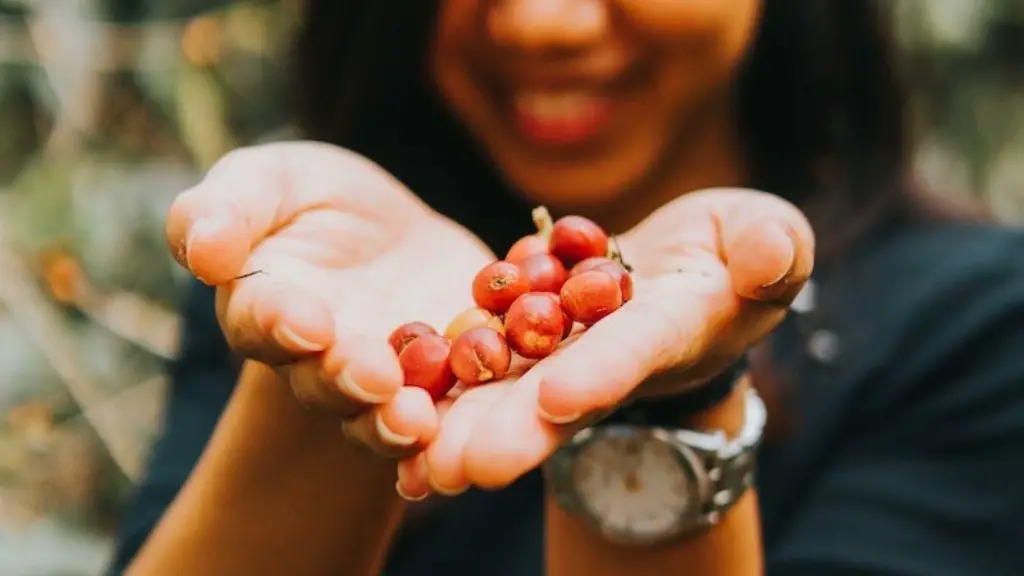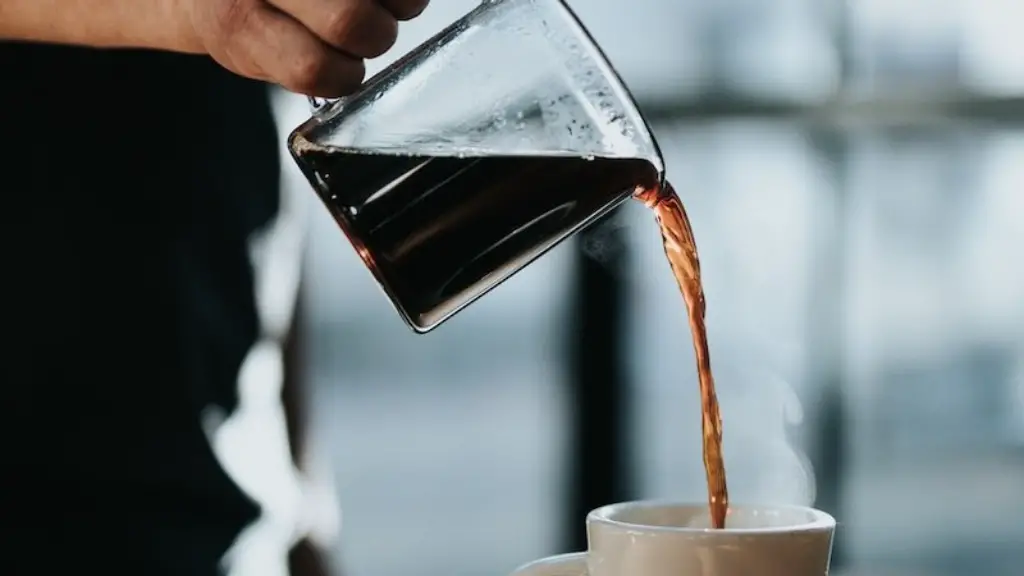Coffee and diverticulitis can be a complicated relationship. Many people are unaware of what diverticulosis is and the effect that coffee can have on it. Diverticulosis is a digestive disorder where small sacs form on the wall of the large intestine, which can become swollen and cause pain and inflammation. Coffee, being a natural stimulant, can make the situation worse if consumed in large amounts on a frequent basis.
The real question here is, can you consume coffee with diverticulosis without exacerbating the problem? Generally, if you have a mild case of diverticulosis, moderate amounts of coffee can be enjoyed as part of your daily diet. You should also enjoy other beverages like tea, juices and plenty of water. Avoiding high amounts of caffeine, however, is crucial, as this can lead to further irritation of the affected area. Additionally, avoiding foods high in fiber, like grains and cereals, is recommended since this can also exacerbate the symptoms.
Drinkers of a cup or two of coffee a day should not have to worry about worsening their diverticulosis. However, this may not hold true for everyone. It is important to be aware of individual reactions. What may be fine for one person may cause problems in another. Generally, if an individual experiences discomfort or pain after drinking coffee, they should avoid it.
Additionally, it is important to talk to a healthcare professional before drastically altering your diet. They will be able to advise based on individual needs, and suggest treatments or lifestyle changes that may help. There are medications available to manage the pain and inflammation associated with diverticulosis.
In order to keep diverticulosis under control while still having a cup of coffee or two, one could try decaffeinated coffee. Some studies have reported better success with decaffeinated coffee than the real stuff. However, it is important to note that the stimulant effects of caffeine may be replaced with other chemicals and substances, so drinking decaffeinated coffee might not be the best alternative. Also, for those who are worried about the ‘healthier’ alternatives, most non-caffeinated options are loaded with added sugar and other ingredients that may cause other health issues.
Overall, if you do suffer from diverticulosis, there is a complicated relationship between coffee and your condition. In order to ensure that coffee does not worsen your condition, moderation is key. Speak to a healthcare professional to discuss what the best course of action is for you. Finding the right balance between coffee and other beverages is the best way forward.
Coffee Alternatives
There are a number of alternatives to coffee that may be helpful in managing diverticulosis. One of the most common is herbal tea. Herbal teas are not only caffeine-free but are also full of antioxidants and other compounds that can help with digestion and bloating, making them a great choice for those suffering from diverticulosis. Drinkers should avoid herbal teas containing senna or mallow, as these can make the symptoms of diverticulosis worse.
Another great option is probiotic drinks. These are drinks that are made from fermented drinks, like kombucha and kefir. These drinks contain beneficial bacteria and yeast that help with digestion. Unlike coffee, probiotic drinks can help improve the balance of bacteria in the gut, which may assist in reducing symptoms of diverticulosis. However, these should still be enjoyed in moderation, as too much can lead to other issues.
Finally, plain water is always a great choice. Water helps keep the intestines hydrated and maintains the body’s natural balance. It also helps reduce symptoms of bloating, which is a common side effect of diverticulosis. Additionally, it helps prevent dehydration, which can make symptoms worse.
Diet Changes
In addition to drinking the right beverages, there are other important dietary changes to make to reduce flare-ups of diverticulosis. One of the first steps is to reduce or remove fried, processed foods from the diet. Fried foods are difficult to digest and can lead to flare-ups. Additionally, reduce the intake of high fiber foods, as these may also cause pain. Instead, focus on eating more fresh vegetables and fruits, as these contain less fiber and more vitamins and minerals to help with digestion.
It is also important to reduce alcohol consumption, as this can dehydrate the body and make symptoms worse. Moreover, try to get plenty of rest and exercise, as both of these can help reduce the severity of symptoms. Exercise can also help reduce stress, which has been linked to worsening the symptoms of diverticulosis.
Finally, it is best to keep track of what foods and beverages trigger symptoms in order to better manage the condition. Keeping a food diary can help with this process, while allowing one to make better and more insightful decisions when it comes to diet and lifestyle.
When to Go to the Doctor
Diverticulosis is a manageable condition and the symptoms can generally be kept under control with lifestyle and dietary changes. However, it is best to check with a healthcare professional if the symptoms persist or worsen over time. The doctor may be able to suggest treatments or lifestyle changes that may help reduce symptoms.
Additionally, if you experience severe pain in the digestive tract, as well as fever, chills and bloody stool, it is best to seek medical attention immediately as it could be an indication of a more serious problem. Finally, if you have recently lost weight or have had changes in appetite, speak to a doctor.
Coffee Intake
Ultimately, the consumption of coffee with diverticulosis is a personal decision. Generally, if you have a mild case of diverticulosis and do not exceed a cup or two of coffee a day, you will likely not experience negative effects. However, for those that are concerned about the effects of coffee, it may be best to refrain from drinking coffee altogether. Prolonged periods without coffee may help reduce symptoms of the condition, while still allowing individuals to enjoy morning beverages.
Finally, when it comes to coffee, it is best to focus on quality. Increasing the quality of your coffee should not be overlooked, as this can drastically reduce the amount of caffeine consumed, as well as the number of other unhealthy ingredients, such as added sugar.
Eating Habits
When it comes to managing diverticulosis, one should focus on their overall eating habits. Eating smaller, more frequent meals can help reduce symptoms of the condition, as well as help keep the digestive tract healthy. Additionally, drinking plenty of water throughout the day is also helpful. This helps keep the intestines hydrated and prevents dehydration, which can make symptoms worse.
It is also best to avoid high-fiber foods, as this can irritate the digestive tract. It is important to stick to low-fiber options instead, such as soft fruits and cooked vegetables. Additionally, processed and fried foods should be avoided, as these can be hard to digest.
Finally, it is important to limit the intake of high sugar and artificial sweeteners drinks such as soda and energy drinks, as well as alcohol. These can cause dehydration and worsen symptoms of the condition.
Reducing Stress
Stress is often overlooked when it comes to digestion and symptoms like diverticulosis. Many people fail to realize the impact of stress on the body, particularly in the digestive tract. The body automatically releases certain hormones when stressed that can significantly increase pain and bloating associated with diverticulosis.
Moreover, the immune system is weakened when an individual is under stress, which can make it harder for the body to fight off exacerbations. It is important to reduce stress as much as possible, particularly if suffering from digestive issues. Ways to reduce stress include yoga, meditation and spending time in nature. Exploring relaxation-based activities or hobbies can also do wonders for reducing stress.
Finally, getting plenty of sleep is an important factor. Lack of sleep has been linked to heightened stress levels, as well as an increased risk of digestive issues.





